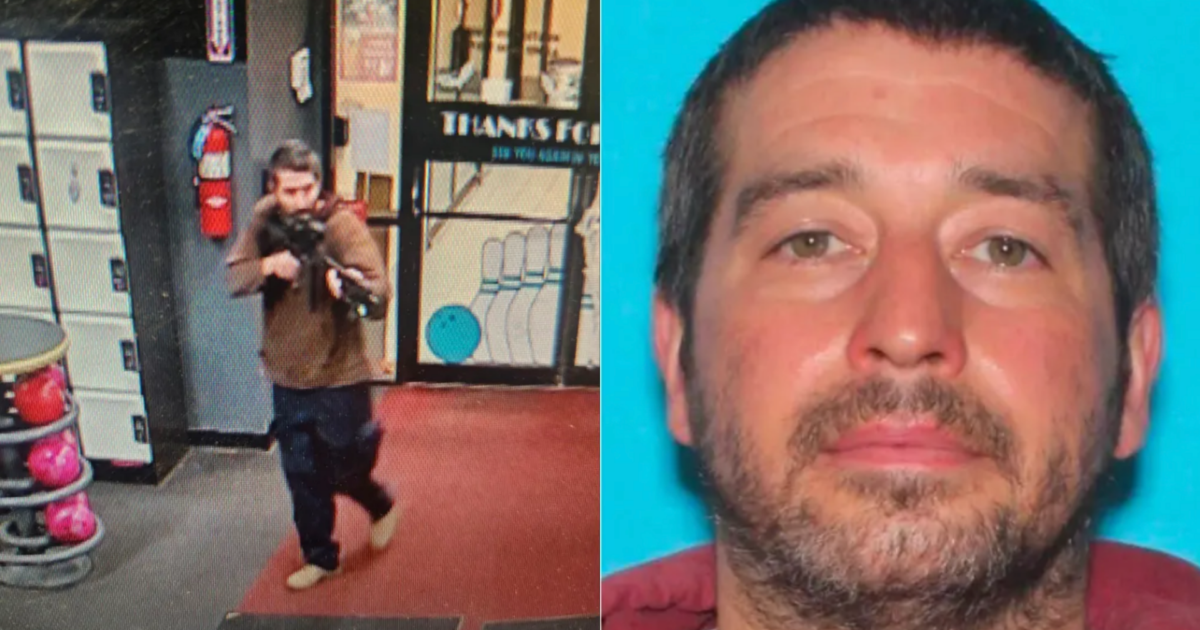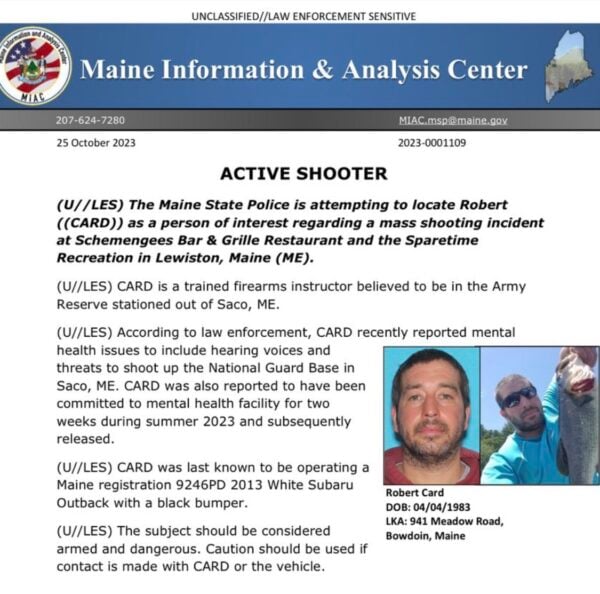Politics
Maine Law Enforcement Received Statewide Alert on ‘Veiled Threats’ by Army Reservist Robert Card Weeks Prior to Bowling Alley and Bar Massacre that Left 18 Dead, 13 Injured

Robert Card, a U.S. Army reservist, went on a shooting spree in Maine, killing 18 people and wounding 13 others on Wednesday night.
The horrifying mass shooting occurred at two popular locations in Lewiston, Maine: Schemengees Bar & Grille Restaurant and the Sparetime Recreation, leaving communities in shock and sorrow.
What is even more alarming is that law enforcement agencies in Maine had been alerted weeks before the incident about “veiled threats” made by Card.
As The Gateway Pundit previously reported, the Maine Information and Analysis Center released information regarding the suspected shooter.
Maine State Police were actively seeking Robert Card, identifying him as a person of interest in the mass shooting events that took place at Schemengees Bar & Grille Restaurant and Sparetime Recreation in Lewiston, Maine.
Card is recognized as a skilled firearms instructor and is thought to be affiliated with the Army Reserve, based in Saco, Maine.
Law enforcement agencies have disclosed that Card has recently experienced mental health challenges, including auditory hallucinations and making threats against the National Guard Base in Saco. It has also been reported that Card was admitted to a mental health institution for a fortnight in the summer of 2023 before being released.

According to the News Center Maine, Sagadahoc County Sheriff Joel Merry had sent deputies to Card’s home in September after receiving a tip from the U.S. Army Reserve that Card had issued “veiled threats” against an Army base.
Authorities were unable to locate him, and they moved on.
“We couldn’t locate him,” Merry said, adding that he couldn’t recall if there was any follow-up.
An “awareness alert” was then sent to all of the state’s law enforcement agencies.
Saco Police Chief Jack Clements even deployed officers to patrol the local Army base where Card had trained, but they also came up empty-handed.
“We added extra patrols, we did that for about two weeks. … The guy never showed up,” said Jack Clements.
Despite the alerts and the efforts to locate him, Card was not on the FBI’s radar before the shootings.
The agency told AP that they “were not provided with or in possession of any information that would have prohibited Card from a lawful firearm purchase.”
Card, who enlisted in the Army Reserve in 2002, was a trained firearms expert. However, signs of trouble had surfaced as early as July when he exhibited bizarre behavior and made threats during a training exercise at Camp Smith near West Point, New York.
He was committed to a mental health facility, Keller Army Community Hospital at West Point, for two weeks, but it appears that this did not put him on the radar of law enforcement agencies.
Spectrum News reported:
Card’s case stands as a glaring example of missed red flags, with many unanswered questions about what the military, police, mental health professionals and relatives could have done to prevent the massacre.
While Maine does not have a red flag law, it does have a more limited “ yellow-flag ” law that would still allow police to petition a judge to take a person’s firearms away if a medical practitioner deems that person to be a threat.
For his part, Saco police Chief Clements defended his department’s response to the alert about Card, which he described as a “generic thing that came out saying, hey, you know, we’ve had some report that this guy’s made some veiled threats.”
Clements noted that his department gets many such alerts and that his officers gave this one its due attention, keeping an eye on the base for any sign of Card.
“Never came in contact with this guy, never received any phone calls from the reserve center saying, ‘Hey, we got somebody who was causing a problem,’” he said. “We never got anything.”
Read the full article here


















